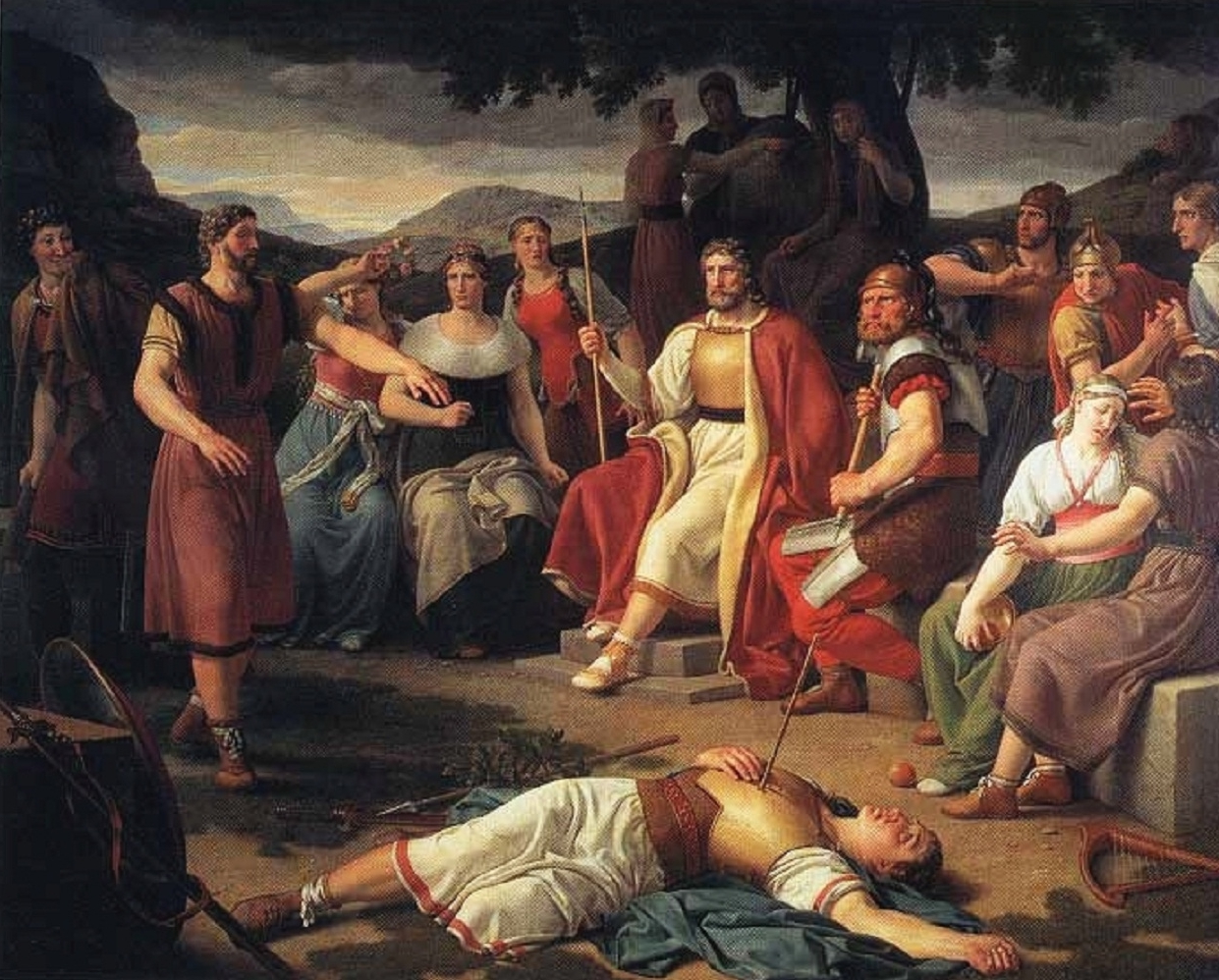“Balders død”, or “Balder’s Death”, by Christoffer Wilhelm Eckersberg, 1817. Thor with Mjölnir sits on Odin’s left, the viewer’s right, observing the death of his brother Balder the Beautiful, most beloved of the gods.
Following a series of visions showing Balder in peril, Odin sought guidance from a seeress, who foretold the death of his cherished son.
Seeking to prevent her son’s death, Frigga went to every creature throughout the cosmos and sought their promise that they would not harm him.
But Loki saw an opportunity to wreak havoc, and discovered that Frigga had failed to secure the promise of one being in all the worlds: mistletoe.
The gods discovered that Balder was newly invincible after Frigga secured her promises, and took advantage of the opportunity to make sport of their invulnerable brother. They attempted to wound him in any way they could, with sticks, rocks, and steel: none could wound him.
But Loki knew otherwise and convinced the blind god Höðr to take part in the games. He gave Höðr a shaft of mistletoe and pointed him at Balder, who had no idea of his unique weakness. Höðr’s throw struck down his brother, and Balder’s doom came to pass.
There is much more to this story, and its consequences figure prominently in Ragnarök. Lots more to come.

[…] Höðr strikes down Baldr due to Loki’s treachery everyone mourns, and at his funeral, his wife Nanna is so overcome with grief […]
LikeLike
[…] you may recall from the mythological telling of Balder’s death summarized in a previous post, a prophetess tells Odin that Balder is fated to die at the hands of his brother Höðr following a […]
LikeLike
[…] of everything in the world having an animating consciousness, not just humans. You may recall in the story of Balder’s death that Frigga sought the promise of everything in the world not to harm Balder, not just humans and […]
LikeLike
[…] Tomorrow is April Fools’ Day, a date readers of this blog might associate with Loki. The Lokasenna is the poem most singularly devoted to Loki at play, insulting each of the gods while they are feasting in the halls of the sea god Aegir. But he takes his flyting too far, and ends up bound and tortured until Ragnarok. Here Loki is very nearly at his farthest from the warm, foolish companion of Odin and Thor; his resentment of his blood brothers is on full display. I’ve included the whole thing, but just a couple of stanzas of Loki’s back-and-forth with a couple of gods should give you a good idea of the form of the poem, and how Loki is pressing his luck here (especially if this is taking place around the time of the death of Balder). […]
LikeLike
[…] poem starts off retelling the death of Balder, which I’ve shared here in detail, along with an alternative version. It’s not just a good story; it’s […]
LikeLike
[…] his son Balder (and, unmentioned here, Odin’s wife Frigg) has been having visions of a death soon to come. Odin hopes to discover that the visions are false, or that Balder’s death can be somehow […]
LikeLike
[…] previously discussed the death and resurrection of Balder at some length, and I won’t revisit the subject today, though […]
LikeLike
[…] posts on Balder and his significance are […]
LikeLike